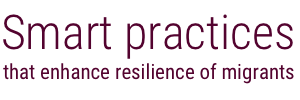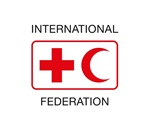A toolkit with information and materials customized for dealing with migrants on the move.
The Hellenic Red Cross provided its volunteers with tips on how to behave when dealing with incoming migrants and a toolkit with relevant information on frequently encountered issues faced by migrants on the move. This was done to improve the engagement of volunteers with migrants entering Greece. Many of the volunteers in Greece who responded to the mass influx of migrants from the Middle East did not have specific training on how to deal with migrants and did not share a language with the migrants. However, because of the reputation of the Red Cross Red Crescent, migrants had been approaching the volunteers with questions and requests for services. Volunteers were not able to provide the most effective support due to language barriers, lack of customized training and lack of easily accessible information. Interactions were rated as awkward.
As a result, volunteers requested a toolkit to tackle these issues. The resulting toolkit provided volunteers with a map of the area and a list of frequently asked questions. The toolkit also provided information to the volunteers on how to behave optimally, including a do’s and don’ts list for engaging with migrants. A volunteer mobilizer was recruited to provide formal inductions to the materials in the toolkit, and to ensure that volunteers were familiar with the information and tools contained within them. Thirty volunteers were provided with the toolkit and used them to improve interactions with migrants. The information will also be made available online through the creation of a ‘digital volunteer’ platform that will complement the printed version of the toolkit with regularly updated information.
- The Frequently Asked Questions in the toolkit needed to be updated and reprinted regularly as services provided by agencies and organizations on the ground changed (new organizations arrive, services change, time-schedules change, etc.)
- Although the toolkit improved communication, the lack of interpreters still imposed some limitations.
- Moreover, lack of adequate information on border closures and their legal and administrative implications (for example, after the closing of borders in southeast Europe) made it very difficult for any organization on the ground to relay clear information.
- The icons and Frequently Asked Questions were effective for facilitating basic communication.
- The printed toolkit has to be combined with online information given the dynamism of migratory flows.

